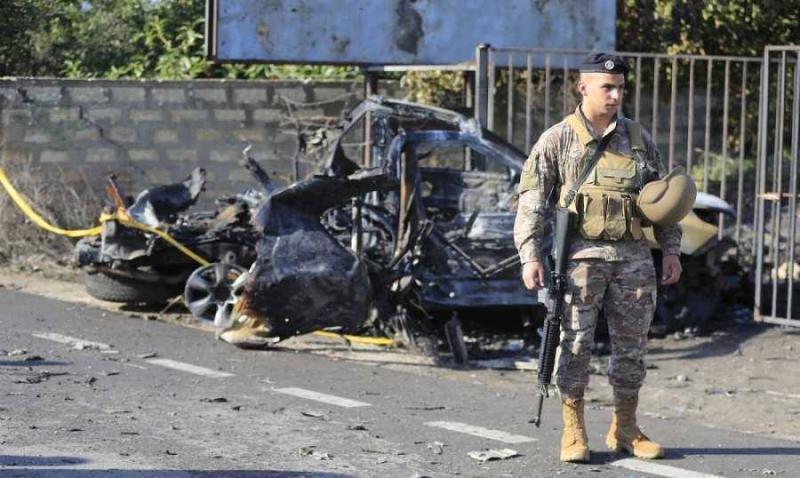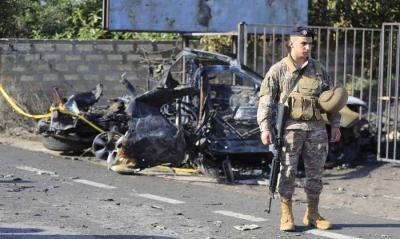With the ongoing escalation in the south, residents are taking advantage of these moments to participate in the funerals of their deceased and check on their homes. Meanwhile, some still hesitate to return to their towns, even though coordination is taking place between the Lebanese Army and UNIFIL, which in turn coordinates with the Israeli army to maintain calm in the region. A military source told "Asharq Al-Awsat" that when a funeral date is set in the south, the relevant parties inform the Lebanese Army of the time and place, which in turn notifies UNIFIL, and they then inform the Israeli army. This is also confirmed by a source from UNIFIL to Agence France-Presse.
The funeral ceremonies for those killed in confrontations between Israel and Hezbollah provide an opportunity for the residents of the border town of Mays al-Jabal to visit their destroyed village based on this temporary calm. However, others still fear this venture, recalling past incidents where Israeli shelling occurred near a Hezbollah funeral. One woman living in Beirut, who usually travels to Aita al-Shaab for summer vacations, told "Asharq Al-Awsat": "In the initial weeks of the war, I went to the village several times and checked on the house, but since the ceasefire last October, I haven’t dared to do that, especially since sometimes the funerals are targeted as happened previously in our village." She noted that although a relative of hers was killed in the war, she did not attend the funeral.
In December, the Israeli army targeted a house in Aita al-Shaab near the site of a Hezbollah member's funeral. A similar incident occurred on the 5th of this month, where an entire family of four was killed by an Israeli strike in Mays al-Jabal during a funeral ceremony. Fadi Hanika, the father, had used the funeral of one of the deceased to retrieve his belongings from his home, but Israeli aircraft targeted him with missiles, resulting in his death along with his wife and two children, and the destruction of their house.




